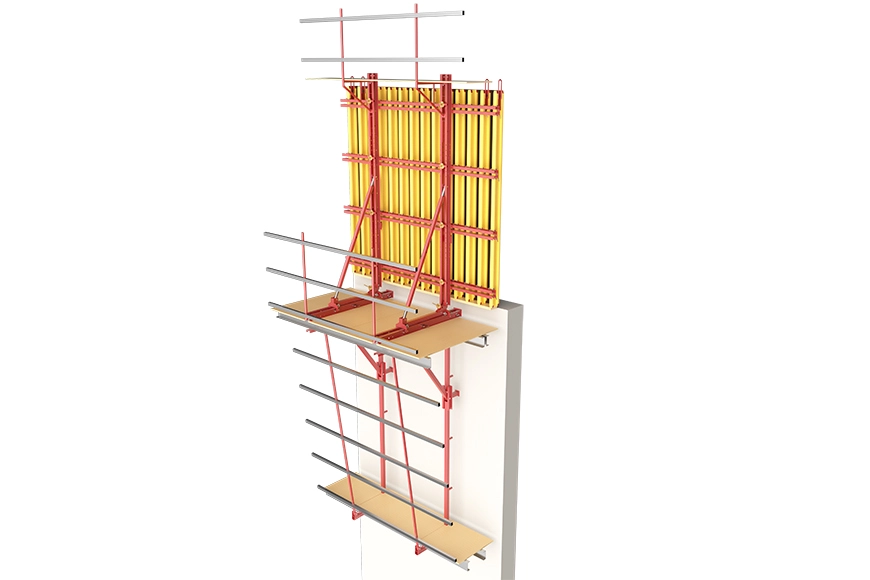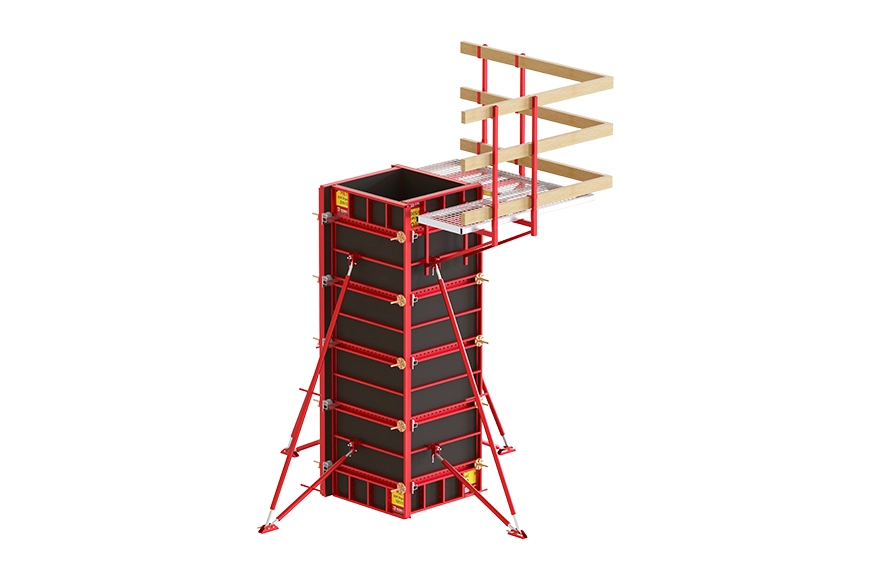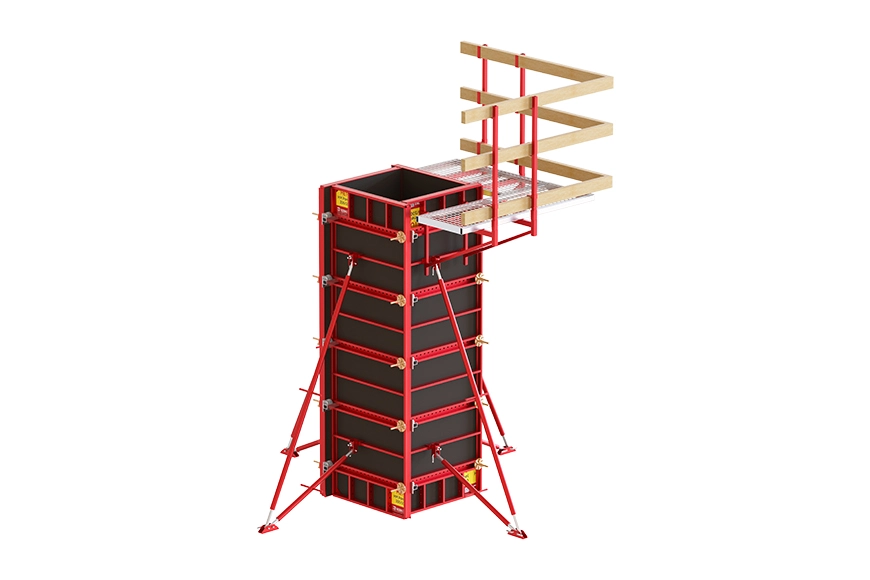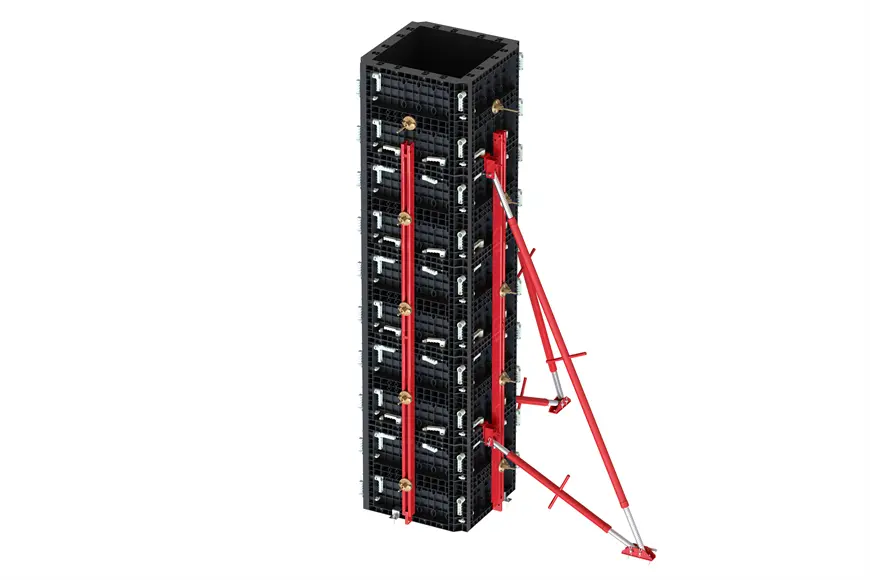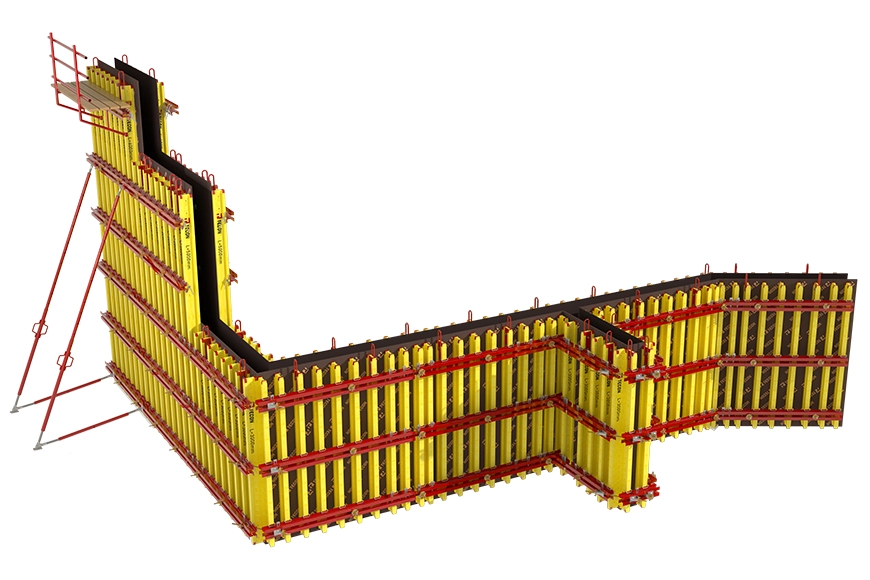Nowadays, aluminum alloy formwork appears in the public eye as a new type of building, and its application can be seen in more and more places. The following is an introduction to the system characteristics of aluminum formwork:
1. Flexible: It can be assembled on the ground and hoisted by a tower crane. In the construction site where the tower crane is insufficient, it can also be disassembled manually.
2. Lightweight: All products are made of high-strength aluminum alloys, with an average weight of 25 kg per square meter. A large formwork of about 2.5 square meters can be easily carried by one person.
3. Simple: The main accessories are pins, wedges and wall inserts. Only a hammer and slightly trained manual workers can quickly complete the installation and removal of the aluminum formwork system.
4. High efficiency: The integrated, standardized and modular system design can facilitate the realization of one-time pouring, make the on-site operation simple and easy, and save a lot of on-site labor and labor costs, effectively shorten the construction period, usually every 3-4 days to complete the assembly and pouring of a floor.
5. Anti-rust: The good anti-rust performance of aluminum alloy formwork brings great convenience to the subsequent use and maintenance of aluminum formwork. It is especially suitable for application in construction in southern humid areas.
6. Accuracy: The extrusion manufacturing process of aluminum alloy profiles can ensure the accurate connection between the frames of the aluminum formwork, and the easy demoulding feature of the concrete shuttering panels makes the concrete surface smooth and clean, and achieves the effect of finishing and clear water.
7. Value preservation: All the recyclable characteristics of aluminum alloys, as well as factors such as the continuous rise of commodity prices in the international market, make the investment in the use of aluminum formwork systems increase the anti-inflation.
1. Inadequacies in module design
In the process of designing the module and its support system, it did not take into account its own weight, construction load, concrete weight and actual pressure generated during mixing, which is the basis to ensure that the building aluminum alloy formwork and its support are not subject to force loads.
Once these factors are ignored in the design process, it is possible to form design deficiencies, resulting in the bursting and cracking of aluminum formwork is a common occurrence.
2. Neglect of soft foundation
The spacing of the beam bottom supports can ensure the weight of the concrete and the construction load force, and in such a case, expansion cracks will not occur.
3. Improper use of fixtures
Fixtures will be used in the construction process. If the proper spacing and tightness cannot be ensured, the aluminum formwork will crack in the later stage, and once the crack occurs, it will affect the normal operation of the entire project and even cause engineering problems.
